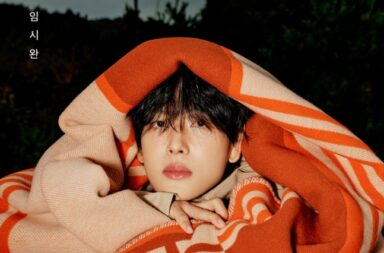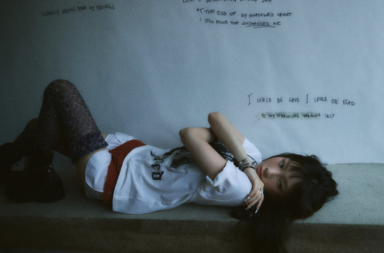An international fan at some point of their lifespan in K-pop will be faced with criticism as to why you’re into K-pop in the first place. Many friends have wondered al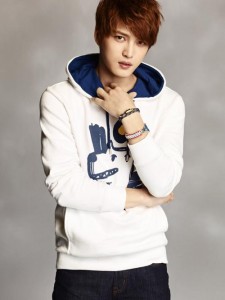 oud how could I be into music that was sung in Korean, a language I didn’t understand, or why I thought that non-gender conforming (to me) or androgynous boys (to them) were the bees’ knees. As much as these complaints annoy me and constantly has me calling out my friends for their ignorance, I find myself a bit thrown off-guard whenever they tell me that I’m shallow for being into K-pop, because the only reason why any person would be into K-pop is because of the looks of the idols. Although I find that argument terribly flawed and ignorant, I can’t help but think of how much image is to the identity of K-pop. Sure, pop music from any other country isn’t any better, especially when it comes to idol groups, but I’m always intrigued by how pervasive the idol image is within Korean society. From an outsider’s perspective, it seems that idols make up the bulk of models for Korean adverstiments, where I’m more used to the prominence of professional models and actors in commericials advertising make-up, clothing and skincare products.
oud how could I be into music that was sung in Korean, a language I didn’t understand, or why I thought that non-gender conforming (to me) or androgynous boys (to them) were the bees’ knees. As much as these complaints annoy me and constantly has me calling out my friends for their ignorance, I find myself a bit thrown off-guard whenever they tell me that I’m shallow for being into K-pop, because the only reason why any person would be into K-pop is because of the looks of the idols. Although I find that argument terribly flawed and ignorant, I can’t help but think of how much image is to the identity of K-pop. Sure, pop music from any other country isn’t any better, especially when it comes to idol groups, but I’m always intrigued by how pervasive the idol image is within Korean society. From an outsider’s perspective, it seems that idols make up the bulk of models for Korean adverstiments, where I’m more used to the prominence of professional models and actors in commericials advertising make-up, clothing and skincare products.
Going back to the weak argument of fans of K-pop being shallow, or into K-pop for the looks, I really don’t understand what’s inherently wrong with enjoying or finding pleasure in the eye candy that is plentiful within K-pop. They aren’t called idols just for their charming personalities. Objectification of K-pop idols is problematic, but is there really anything wrong with finding someone physically attractive, or liking them because of the way they look, especially when they come from an industry that thrives on the objectification of people in general? I think the real problem lies with people not being able to look past a person’s looks, or judging them on their looks, but I doubt that the vast majority of K-pop fans judge their biases solely based on their looks. Yes, everyone has their bias, that more or less begins with if they find them physically attractive or not, but if the ulzzang of the group is an unsavoury fellow or lady in terms of character, I think that many people would drop that person quickly off their bias list. Attraction isn’t limited to the physical, and thanks to variety shows, we can have a chance to see the personality of the idol, whose looks set our hearts a-flutter. Several of my biases have gotten onto my list because of their personalities and their physical beauty is really just an added bonus, in my opinion.
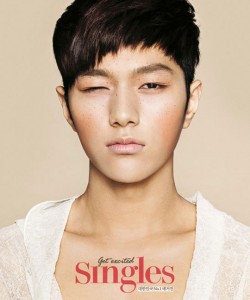 But before we write off this criticism as a mere lack of knowledge of K-pop as a whole, which it frankly is, let’s discuss the implications of the superficial aspect of K-pop idols. Although some fans might be able to see past an idol’s look, it’s hard to ignore the weight an idol’s appearance has within a group and that sometimes, personality and talent can get overlooked because of their appearance. It’s hard to see members of a group being ranked based on their looks or being overshadowed because the face, which is usually is the visual, of the group dominates the group in terms of screentime. There is also the fact that some idols are either told by management, or decide for themselves, that they must undergo plastic surgery in order to have a sense of confidence prior to or during their debut. It was heartbreaking to hear the story of ZE:A’s Kwanghee, who went so far to get plastic surgery because of the judgment he recieved and his lack of confidence in his looks. I think that’s the real problem within K-pop, in terms of the looks of the idols. The problem isn’t that we like idols based on their looks, it’s the beauty culture and standards that are reflected within K-pop.
But before we write off this criticism as a mere lack of knowledge of K-pop as a whole, which it frankly is, let’s discuss the implications of the superficial aspect of K-pop idols. Although some fans might be able to see past an idol’s look, it’s hard to ignore the weight an idol’s appearance has within a group and that sometimes, personality and talent can get overlooked because of their appearance. It’s hard to see members of a group being ranked based on their looks or being overshadowed because the face, which is usually is the visual, of the group dominates the group in terms of screentime. There is also the fact that some idols are either told by management, or decide for themselves, that they must undergo plastic surgery in order to have a sense of confidence prior to or during their debut. It was heartbreaking to hear the story of ZE:A’s Kwanghee, who went so far to get plastic surgery because of the judgment he recieved and his lack of confidence in his looks. I think that’s the real problem within K-pop, in terms of the looks of the idols. The problem isn’t that we like idols based on their looks, it’s the beauty culture and standards that are reflected within K-pop.
Every society is considered to have their own beauty standards, its very own over-arching ideal type if you will, and South Korea is no exception. Sometimes, I feel like these beauty standards are universal, as they tend to overlap, with the same “white 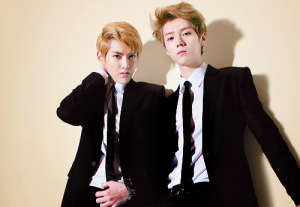 skin, big eyes, skinny body” ideal popping up all over. Some might say that this is due to the Westernization of the world, but I find that to be a stretch and a tad ethnocentric. The features of fair skin and big eyes are not exclusive to Western countries, primarily in Western Europe and North America–excluding Mexico–but are a rarity. They are valuable because they are a rarity, not because it’s Western. To some extent, this ideal is dominant within Korean society, with fair skin being fared over tan and big eyes preferred over smaller ones. The size of one’s body can be attributed to both men and women, and those who have most, if not all of these criteria, usually end up being very popular within South Korea (such as f(x)‘s Sulli, JYJ’s Jaejoong and Miss A‘s Suzy.)
skin, big eyes, skinny body” ideal popping up all over. Some might say that this is due to the Westernization of the world, but I find that to be a stretch and a tad ethnocentric. The features of fair skin and big eyes are not exclusive to Western countries, primarily in Western Europe and North America–excluding Mexico–but are a rarity. They are valuable because they are a rarity, not because it’s Western. To some extent, this ideal is dominant within Korean society, with fair skin being fared over tan and big eyes preferred over smaller ones. The size of one’s body can be attributed to both men and women, and those who have most, if not all of these criteria, usually end up being very popular within South Korea (such as f(x)‘s Sulli, JYJ’s Jaejoong and Miss A‘s Suzy.)
Who comes up with these standards? Some say that beauty standards are a classist system that are determined by the wealthy and imposed on the poor to segerate the two groups into the beautiful, worthy class and the ugly and unworthy class. It could also be the fact that rare things are somewhat more intriguing and desirable, because they are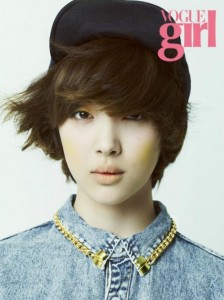 not easily attainable. It’s hard to tell without delving into a long history of its formation, as they constantly evolve, which I don’t have the room for here, but it’s fair to keep in mind that these beauty standards are reflected by the K-pop industry, and reinforced as well.
not easily attainable. It’s hard to tell without delving into a long history of its formation, as they constantly evolve, which I don’t have the room for here, but it’s fair to keep in mind that these beauty standards are reflected by the K-pop industry, and reinforced as well.
Beauty is in the eye of the beholder, but with the popularity of these aforementioned idols, in addition to other usual suspects like SNSD‘s Yoona and Super Junior‘s Siwon, comes the dominance of these idols within the market. Entertainment companies are more than willing to push their visually popular members into the forefront in terms of endorsement deals and acting roles. The love calls these specific members get because of their popularity and predominance, the cycle just continues. The pervasiveness of those who are more visually popular is not exclusive to K-pop, but the rest of Hallyu, with certain actresses and actors getting roles heavily based on their visual popularity, rather than their actual talent. Yes, being naturally or unnaturally good-looking in Hallyu makes having and maintaining a career a lot more easier than the less visually gifted people, which is irksome but isn’t surprising. This is a commonality in all fields of work and even stages of life, with those who fit the current beauty standards often catching the most breaks in life over those who aren’t.
But what does this mean for international K-pop fans, or even fans in general? D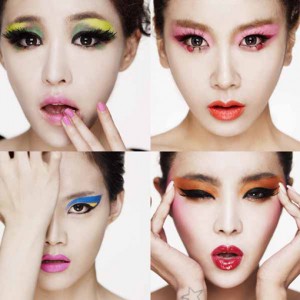 oes the beauty standards of one country impact its inhabitants more than it does outsiders? With the spread of Hallyu in the East there has been a rise in medical tourism for plastic surgery, with foreigners coming into South Korea to look like their favorite Hallyu stars. Within Korea, people constantly attempt to mimic the features of K-pop’s flavour of the month because it’s what is popular within Korean society. One can definitely see the downside and influence of K-pop’s beauty standards, but does it have an effect on Western fans like myself?
oes the beauty standards of one country impact its inhabitants more than it does outsiders? With the spread of Hallyu in the East there has been a rise in medical tourism for plastic surgery, with foreigners coming into South Korea to look like their favorite Hallyu stars. Within Korea, people constantly attempt to mimic the features of K-pop’s flavour of the month because it’s what is popular within Korean society. One can definitely see the downside and influence of K-pop’s beauty standards, but does it have an effect on Western fans like myself?
I don’t think so, seeing as it varies whether or not one grew up in a society with similar beauty standards to Korea or not, but it doesn’t mean that those of us that are non-Korean, or even non-Asian, will find ourselves wanting to look like Korean idols. Not all fans agree with South Korea’s popular choices of beautiful idols either–I’d pick Kyuhyun over Siwon any day–and don’t forget, that no two bias lists are ever really the same. Our perceptions of what is beautiful is affected by the beauty standards we were raised with, but that’s not to say we are bound by them. If we were, most of us international fans should not have found Korean idols attractive at all, so the strength of beauty standards may be subjective.
There is nothing wrong with liking idols based on their looks–as long as you don’t judge them based solely on their looks. The issues lies within the role of looks in K-pop and how it, as a system, reinforces beauty standards. I think that’s the inherent problem with all entertainment industries, in all countries, that despite how much we complain about how the entertainment industry propagates beauty standards, we still support it by buying into it. Are physical appearances in K-pop really that important to us fans? Just ask yourself this: would K-pop be as popular as it is without all the aesthetics? Would you still love it without all the pretty faces?
(Singles, Vogue Girl, Naver)

